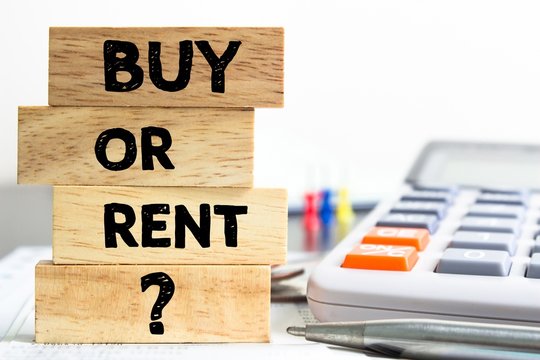rent vs buy calculator – When considering a place to live, one of the biggest decisions you will face is whether to rent or buy. The financial implications are significant, and the right choice will depend on your personal situation, financial goals, and lifestyle preferences.

Renting vs Buying
Renting typically involves paying a landlord a monthly fee to live in their property. You usually don’t have to worry about maintenance, property taxes, or significant upfront costs, but you also don’t build equity or have the long-term stability that comes with homeownership.
Buying a home involves a large upfront investment (down payment, closing costs) and long-term financial commitments (mortgage payments, property taxes, insurance). However, owning a home allows you to build equity over time, and you have more control over your living space.
Key Considerations in the Rent vs Buy Debate
1. Initial Costs
- Renting: The upfront costs of renting are relatively low. You may need to pay a security deposit (usually one or two months’ rent) and first and last month’s rent. However, no down payment or closing costs are required.
- Buying: When buying, the upfront costs can be substantial. A down payment can range from 3% to 20% of the home’s purchase price, depending on the type of loan. There are also closing costs, which can add up to an additional 2-5% of the home’s purchase price.
2. Monthly Payments
- Renting: Rent is usually a fixed monthly expense, which may increase slightly each year depending on your lease agreement. Renting also frees you from costs like property taxes, homeowners’ insurance, and maintenance fees.
- Buying: Your monthly mortgage payment is typically fixed (if you choose a fixed-rate mortgage), but owning comes with other expenses such as property taxes, homeowners insurance, utilities, maintenance, and potentially homeowners association (HOA) fees.
3. Building Equity
- Renting: Rent payments don’t contribute to ownership of the property. Essentially, you’re paying for the right to live in the space but don’t gain any ownership interest or equity.
- Buying: Each mortgage payment builds equity, or ownership, in the home. As the value of the property appreciates over time, you may also gain additional wealth through home equity.
4. Flexibility vs. Stability
- Renting: Renting offers flexibility, particularly for those who anticipate moving frequently or for short-term living arrangements. It’s easier to break a lease or find another rental without the complexity of selling a property.
- Buying: Owning a home provides stability, but it ties you to the property. Selling a home can take time, and there are costs involved, so buying is typically a better option if you plan to stay in one place for a long period.
5. Tax Benefits
Buying: Homeowners can deduct mortgage interest and property taxes from their taxable income, potentially resulting in significant tax savings over the life of the loan.
Renting: Renters do not receive tax deductions for their rent payments.
Using a Rent vs Buy Calculator
A rent vs. buy calculator is a valuable tool to help you evaluate the financial implications of renting versus buying a home. These calculators typically require inputs like:
- Home purchase price
- Down payment
- Mortgage interest rate
- Property taxes and homeowners insurance
- Rent amount
- Length of time you plan to live in the home
By analyzing these variables, a rent vs. buy calculator can show you the total costs of owning a home compared to renting, factoring in potential home appreciation, tax benefits, and the growth of equity over time. It can help you understand at what point buying becomes more cost-effective than renting.
Example Scenario Using a Rent vs Buy Calculator
Let’s say you’re considering buying a $300,000 home versus renting a similar property for $2,000 per month. After inputting the following data into a rent vs. buy calculator:
- Home price: $300,000
- Down payment: 20% ($60,000)
- Mortgage interest rate: 4%
- Mortgage term: 30 years
- Annual property taxes: $3,000
- Homeowners insurance: $1,000
- Monthly rent: $2,000
- Length of stay: 5 years
The calculator would provide a detailed comparison, showing the total cost of renting versus buying, accounting for monthly mortgage payments, tax deductions, appreciation of the property, and other factors.
Potential Outcomes:
- Renting might be cheaper in the short term (especially if you plan to move in less than 5 years).
- Buying could result in greater financial benefits in the long run, as you build equity and take advantage of potential property appreciation.
The Bottom Line: Rent vs Buy – What’s Best for You?
There is no one-size-fits-all answer to the rent vs. buy question. The decision depends on your financial situation, long-term plans, and personal preferences. A rent vs. buy calculator can help you quantify your options, but ultimately, you must consider both the financial and emotional aspects of the decision.
- If you plan to stay in one place for several years and have the financial resources for a down payment, buying may be a wise choice for long-term wealth building.
- If you value flexibility, have limited savings for a down payment, or aren’t sure where you want to settle, renting may be the better short-term option.
Before making a decision, it’s important to consult with a financial advisor or mortgage broker to get a clearer picture of what you can afford and the best financing options available.

